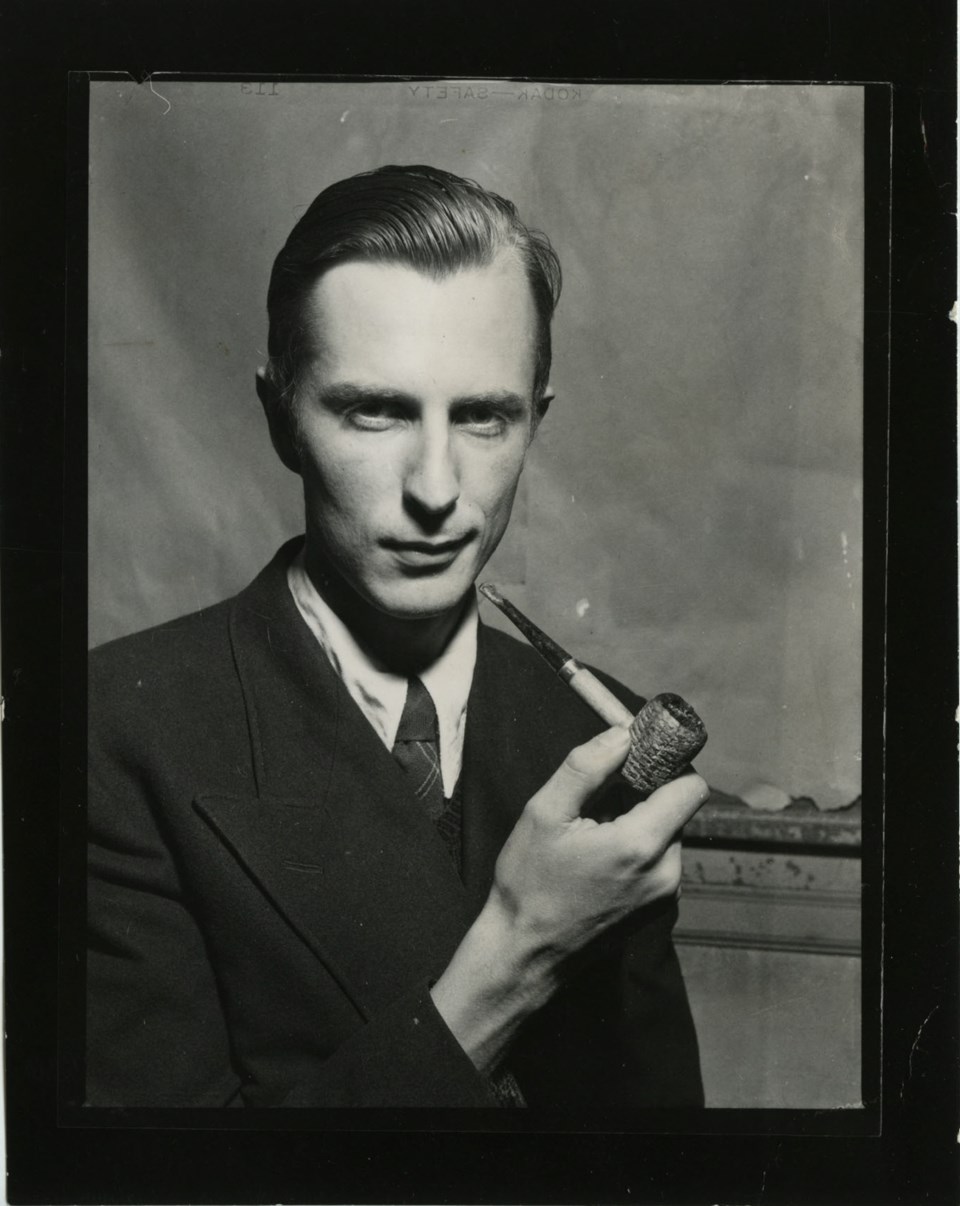G.E. Mortimore’s Langford Lake house was so lively that sometimes he would have to row to a little island to type his column in peace.
“That home on the lake was a centre of Daily Colonist boozing and parties,” says son Michael Mortimore.
Not the image that jumps to mind when thinking of the erudite, witty writer whose insight and eye for telling detail made him a popular read for Victorians in the 1950s.
It seems incongruous, too, with the frail old man who died in Victoria General Hospital on July 29, five days after turning 94.
Most people, no matter how prominent they were in their chosen field, have fallen out of the public consciousness by that age. Better to expire relatively young if you want a packed house at your funeral. In the newspaper world, obituaries of old journalists are usually published at the insistence of old editors and assigned to junior reporters who don’t have a clue who they’re writing about or why anyone would care.
But Richard George Ernest Mortimore — known as Gem, the acronym of his byline — never really went away, was still writing a Goldstream News Gazette column last year, along with pieces for the Lower Island News and the Centre For Policy Alternatives, capping a career that spanned three quarters of a century.
Born in East Africa to the youngest son of a wealthy English family, he learned Swahili, the language of his nanny. He was little more than a toddler when the family moved to Duncan where they “slipped into genteel poverty,” said Michael, one of Mortimore’s three sons.
Mortimore was a teenager when he began writing for the Cowichan Leader, but quit to join the air force at age 19 after the Second World War broke out. A navigator on Lockheed Hudson bombers, he spent most of the conflict flying out of India and Ceylon, far from the action.
Back from the war, he joined the Victoria Daily Colonist as a reporter in 1945. For years, he wrote profiles of Victorians, everyone from the lieutenant governor to tattoo artist Doc Forbes. Mortimore knew everybody: When his All Aboard column debuted in 1950, the Colonist bragged that he had covered everyone from “the thieves and drunks of the night beat to visiting celebrities.”
His subjects were eclectic. “He told a story about how he interviewed Bob Hope one time on Max Bell’s yacht in the harbour,” Michael says. Mortimore interviewed everyone from the Three Stooges to the chief justice of the Supreme Court.
He was serious about social issues. A 52-article series titled “The Strangers,” a searching appraisal of aboriginal life in B.C., won a National Newspaper Award in 1958.
“He was an early environmentalist and an early advocate for natives and the rights of the downtrodden,” says Michael.
Mortimore was known for being intelligent and well-read, but that doesn’t mean he could always find the books. “My dad was always losing things,” Michael says. “He was legendary for being disorganized.”
Once, he interviewed a scientist who lent him a letter the scientist had received from Albert Einstein. Unfortunately, Mortimore lost it. “The guy was pretty upset,” says Michael. Mortimore wrote Einstein and persuaded him to write a replacement letter for the scientist.
All Aboard ran from 1950 until 1962, when Mortimore left for Toronto and the Globe and Mail. He later became a professor of anthropology, teaching in Guelph, Edmonton, the University of B.C. and UVic.
When Peggy and G.E. Mortimore returned to Victoria around 1980, it was to the treasured Langford Lake house they had bought in 1955. It was a surprise when he finally left it last year for Sunset Lodge, Michael says. “He always said he would never end up in such a place.” (A Globe and Mail column described a visit Mortimore made to his mother in a Victoria nursing home in 1975: “I found myself oddly hurt to see that while my world had stretched out to include new things and places, my mother’s living-space had shrunk very small.”) Such is the arc of life.
Those who remember G.E. Mortimore’s life can contact his son at michaelmortimore1@gmail.com.



